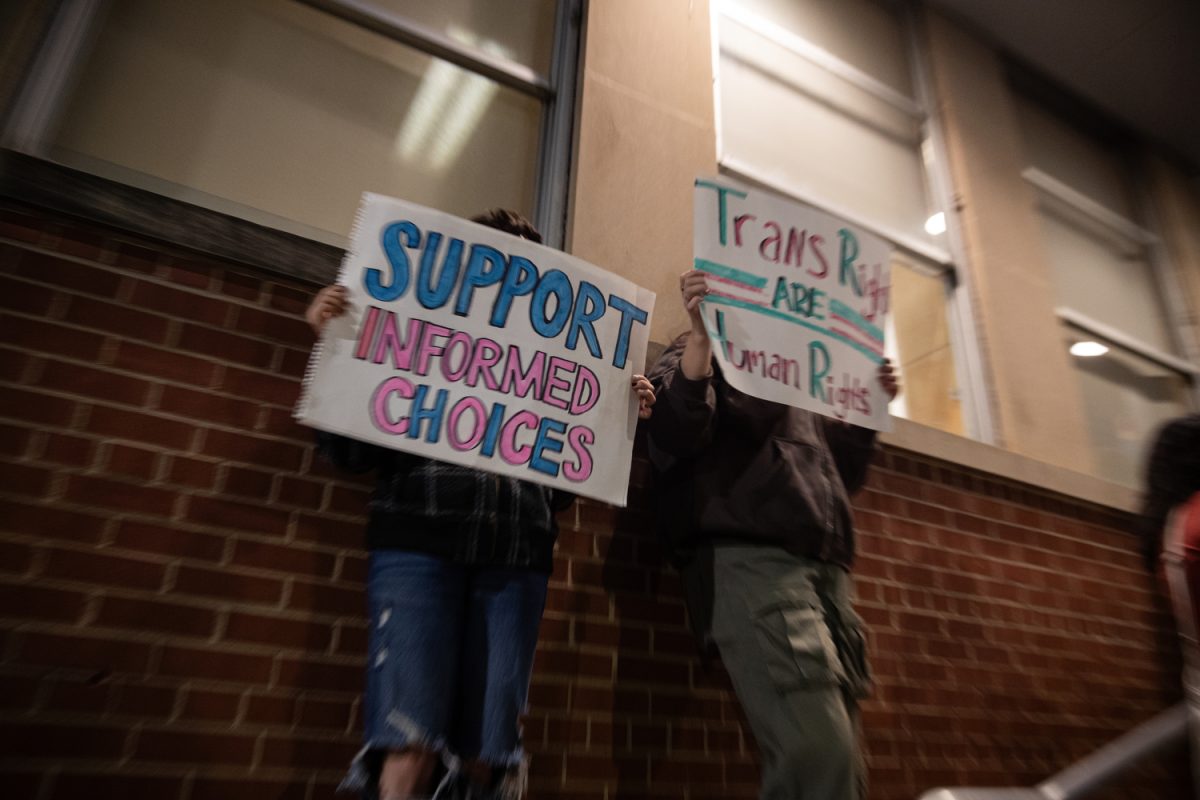Iowa legislators rejected a proposed bill that would have removed gender identity as a protected class under the Iowa Civil Rights Act during a hearing on Wednesday.
The bill would not only have removed gender identity as a protected class, it would have also classified gender dysphoria and other aspects of gender identity as a disability. Gender identity would subsequently be protected as a disability under laws about disability.
A panel of lawmakers that included Iowa Reps. Sami Scheetz, D-Cedar Rapids, John Wills, R-Des Moines, and Charley Thomson, R-Charles City, voted unanimously against the bill, House File 2082.
According to the Des Moines Register, state Democrats first added protections for gender identity to the Iowa Civil Rights Act in 2007.
The proposed bill was highly controversial amongst Iowa residents, evidenced by a panel hearing that lasted a little over an hour with dozens speaking in opposition, compared to a handful speaking in favor.
As lawmakers listened to comments from a packed room, protestors stood outside in the hallway, aiming profanities at the bill’s author Iowa Rep. Jeff Shipley, R-Fairfield.
Shipley himself opened the hearing, and he said people within District 87, his constituency, believed gender identity to be more akin to “physical and mental impairment.”
Pete McRoberts, policy director of the Iowa American Civil Liberties Union, said the ACLU was “glad” when gender identity was first added to the civil rights act, and believes multiple court cases protected its inclusion.
“We respectfully ask you to deny advancing this bill,” McRoberts said at the hearing. “We believe that the Iowa Civil Rights Act does as it’s intended.”
Another opponent of the bill was Madison Fiedler-Carlson, a lawyer who works on civil rights cases in Des Moines. She said in her time practicing law, she had only seen one case that involved gender identity.
Though gender identity is not a common issue in the court system, Fiedler-Carlson said it was still important to protect the individuals the bill affects.
She gave an example of a case she had worked on where a transgender man was harassed by coworkers. He was asked if he was a “real male” or “real woman,” among other negative statements, she said.
She said if the bill moved forward, it could mean the courts would not protect him based on sexual discrimination or harassment.
“It would be understood that it no longer protects anybody who is trans,” Fiedler-Carlson said. “We would still be able to file lawsuits in federal court, but then the standards would be different. It is making it essentially a quagmire in our court system.”
Also in attendance was Iowa’s first openly transgender elected official, Aime Wichtendahl, who serves on the Hiawatha City Council.
Wichtendahl gave an impassioned speech in her allotted time, during which she said lawmakers in Iowa had already targeted health care, banned books, and had “forcibly outed queer kids.”
RELATED: Proposed Iowa bills could reduce advocacy for people experiencing homelessness
She called on the committee to issue an apology for even holding a hearing to discuss the bill and said Iowa would be the first state to repeal civil rights protections for citizens in the U.S.
“You seem to think that being trans is some kind of ideology, so I will say it plain: there is no such thing as transgenderism, there are only transgender people,” Wichtendahl said. “We are human beings, we are American citizens, we are Iowans, and we do not deserve this abuse that we are getting from our governments.”
At the end of the hearing, all three representatives briefly spoke before making their vote on the bill. Wills said he would vote no because he believed all people were created equally, and that the proposed bill would provide more protections for people rather than less, because of the disability designation.
During his remarks, Thomson said he was concerned that the bill could cause civil rights violations, and believed there were issues in the bill’s drafting that needed resolving. As such, he would also vote no.
More in line with the majority of speakers at the hearing, Scheetz said he believed the bill could harm Iowans, especially those who belong to a marginalized community.
“If we want to convince young people, like me, to stay here to build generations to raise families in this state, we have to be welcoming,” Scheetz said. “Taking fundamental civil rights away from Iowans is not the way to show people in the United States that we are a welcoming state.”



